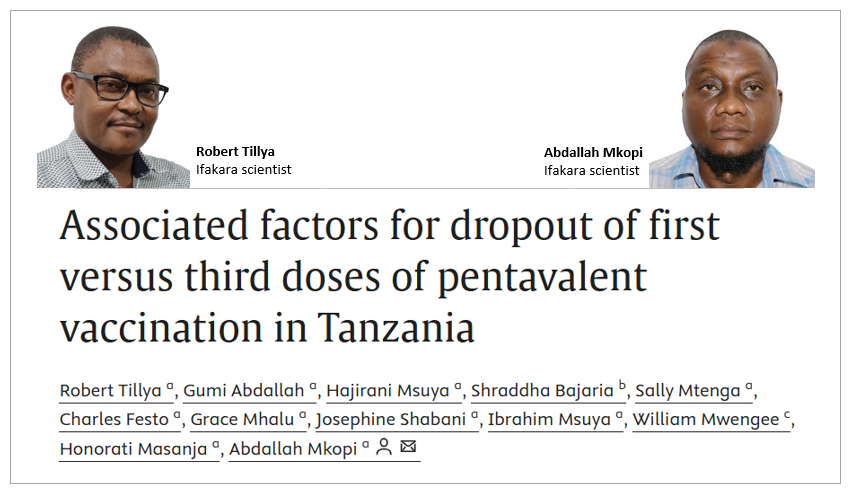
IMMUNIZATION: Why some kids in Tanzania miss their full vaccine protection

A new study led by Dr. Robert Tillya, a seasoned researcher at the Ifakara Health Institute, reveals thousands of Tanzanian children are not fully protected against five deadly diseases due to incomplete vaccination schedules.
Conducted by Ifakara in collaboration with the World Health Organization (WHO) in Tanzania, the research – published on the Vaccines recently – focuses on the pentavalent vaccine, a shot protecting against diphtheria (a throat infection), pertussis (whooping cough), tetanus (a nerve-affecting infection), hepatitis B (a liver disease), and Haemophilus influenzae type B (a bacterial infection causing meningitis).
High start, lower finish
In 2019, Dr. Tillya and team, including the last and corresponding author, Dr. Abdallah Mkopi, surveyed 4,403 caregivers of children aged 12–23 months. They found 91.5% of kids got the first pentavalent dose, but only 89.4% received the third, final dose needed for full protection.
This gap, called the dropout rate (when a child starts but doesn’t complete the vaccine series), was 2.3% overall.
Mainland vs. Z’bar: A noticeable gap
The study revealed a significant difference between regions. The vaccine dropout rate in Zanzibar was just 0.9%, compared to 2.4% on the Tanzanian mainland. This suggests regional factors may influence access or adherence to vaccination schedules.
Why kids miss out
The study identified several key reasons why children miss the third dose of the pentavalent vaccine.
First, wealth played a significant role. Children from poorer families were more likely to skip vaccine doses. This may be due to indirect challenges such as travel costs or long distances to health clinics, which can discourage caregivers from completing the full schedule.
Second, the gender of the caregiver influenced vaccine completion. Whether the caregiver was male or female affected the likelihood of the child receiving all doses, although the study did not explain the underlying reasons for this pattern.
Lastly, education was a notable factor. Caregivers with less formal education were less likely to complete the vaccine schedule, possibly because they were unaware of the importance of receiving all three doses for full protection.
What this means
A 2.3% dropout rate leaves thousands of kids vulnerable to serious diseases. The findings urge better health education (teaching parents about vaccines) for expectant mothers during clinic visits to emphasize completing all three doses. The study also calls for improved vaccine access, especially for low-income families.
A path forward
By addressing these barriers, Tanzania can ensure more children complete the pentavalent vaccine, protecting them from life-threatening illnesses. Tailored education and regional outreach, backed by Ifakara and WHO, will keep kids safe.
Read full publication, here.
